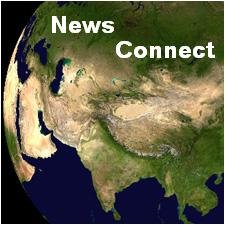Turning on "the news" is a common experience across America. But who are the people actually deciding what is "newsworthy"?
For many years democracy-supporters have warned how much of the "media" (meaning radio, television, film, newspapers, magazines, music labels and book publishers) is controlled by just 7 mega-corporations. Some people call these wealthy organizations corporate media monopolies. Check out that PBS link to see for yourself who owns what.
But what's the big deal? Aren't these corporate media monopolies just the most efficient way media can be fed to the American people and the world itself?
The fundamental problem (from Wikipedia):
If it is in the best interests of the media conglomerates not to run a story or allow a particular opinion, but in the best interests of the public interest to run it, it arguably makes better business sense to opt for the former over the latter. On the local end, reporters have often seen their stories refused or edited beyond recognition, in instances where they have unearthed potentially damaging information concerning either the media outlet's advertisers or its parent company.
For example, in 1997, the Fox affiliate in Tampa, Florida fired two reporters and suppressed a story they had produced about one of the Fox network's major advertisers, Monsanto, concerning the health effects of Bovine Growth Hormone (BGH). Fox took action after Monsanto threatened to sue over the story.
But don't take Wikipedia's word for it. This is from the CEO of CBS:
"We are here to serve advertisers. That is our raison d’etre."
While it may be easy to shove the blame onto the advertisers, in truth corporate media companies are gigantic corporations themselves who also have "desires" to make more and more money. To this end, they lobby the U.S. government using millions of dollars to ease media rules that are supposed to protect American democracy and freedom of speech. After all, if you're free to speak but no one can hear you... what good is it really? Corporate media controls the platform, for now.
This corporate media control over information extends further into politics than just donations to political candidates and parties. Most Americans find out about politicians and hear debates EXCLUSIVELY through the corporate media-owned distributors. Ron Paul, the libertarian-turned-Republican now running for the Republican national ticket, was seemingly deliberately given less airtime than any other candidate. This is despite his much wider base of popular and financial support than many others who were given more air-time and more questions from the corporate-media hired "moderator".
Check out Ron Paul's responses below and see what corporate media doesn't want Americans to hear.
The full story is here.
What's the solution? Get involved yourself. Start a free blog or just read news from a wide variety of sources online. The internet and the power of networking ultimately up-ends the "news-distribution" business model that these corporate media monopolies rely on.
Note: For an interesting example of alternative internet distribution models, check out Radiohead's new album, released without corporate media money and available directly to you for as little or as much as you feel the album is worth.
Subscribe to:
Post Comments (Atom)



No comments:
Post a Comment